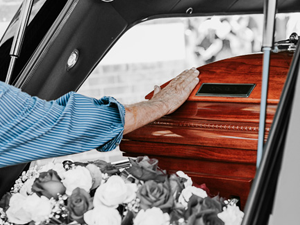How to Write a Eulogy
The person writing and delivering the eulogy at a loved one’s funeral should leave attendees feeling like they know the deceased better than they did at the start of it.
A good starting point is to sit down and jot down things you remember about them, just as they come to mind. As with all writing, a eulogy needs a beginning, core and conclusion. Make the beginning engaging, start personally and “at pace”. The core of the speech should be an outline of the person and their life; some people like it to be very rich in anecdotes but this is personal preference only. The end should be memorable, moving and if possible, profound. It should feel natural to end at that point.
BACKGROUND WORK
Here are a few questions that might get you started:
- What was it that made you close to the deceased?
- What did you most admire/respect in the person?
- What will you miss/remember most?
- What was it like to know them?
- What were the very important ways they were of help to you or your family?
WRITING THE EULOGY
Firstly, no matter how well you know the deceased it may pay to speak to other family members or friends, work colleagues or other people they knew well. People often have different perspectives and experiences that can provide a rounded, richer eulogy.
Once you have engaged in some consultation, you should follow the path of most writers and draft a quick structure or plan rather than starting from scratch and letting it take its own path.
For example:
- Personal memories
- “Dry facts”
- Childhood
- Career
- Hobbies and interests
- Family life and history
- Qualities, achievements and legacy – how they left the world a better place
- Closing – a fitting summation of their character
Now you can flesh it out, writing conversationally. Aim for 500 to 1200 words and read it aloud. Get a feel for it, edit and re-read as you need.
Always number the pages and type in at least 12 font or make sure you write legibly if you approach it the old-fashioned way.
Of course if you are an experienced public speaker, you may wish to use speech notes rather than a speech and not move much past noting a structure and some key points.
Final Tips on Delivering the Eulogy
- Dress comfortably
- Have water at the ready
- Have a back-up plan – celebrant, priest, other guest etc.
- Remember emotions are fine. It’s normal. It’s what people expect at a funeral.




